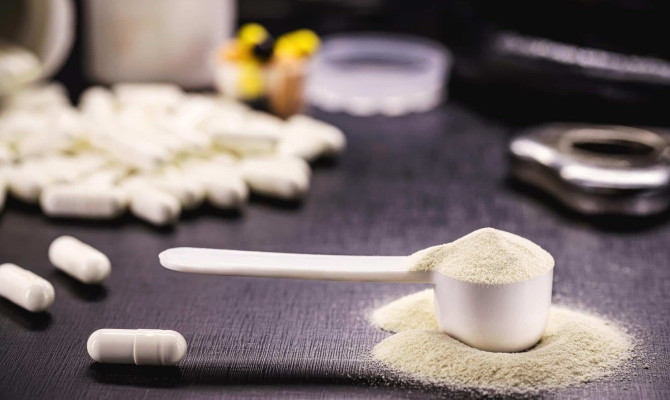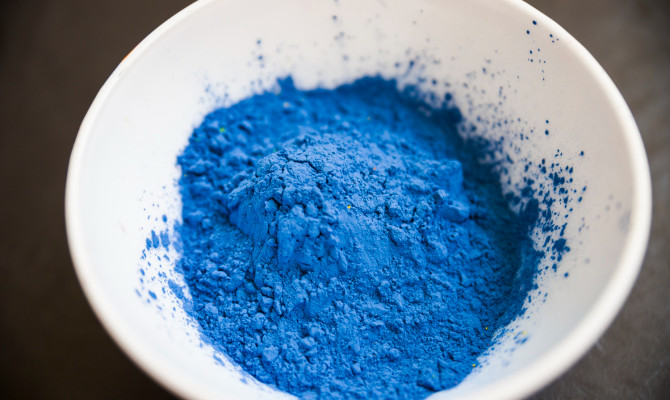Fenugreek and its health benefits

- Fenugreek
- 16 Aug 2023
Overview
What is Fenugreek?
Fenugreek is a plant utilized for culinary and medicinal uses throughout history in many different cultures. It is a Fabaceae family annual herb widely grown in the Mediterranean, North Africa, and India. The plant produces tiny, golden-brown seeds used as spices because of their slightly bitter and nutty flavor.1Overview| Researched based study from Nlm.nih.gov
We shall discover more about its applications, advantages, and hazards in this post.

The cultural and historical importance
- It has been used for a very long period in several cultures all over the planet. In ancient Egypt, it was used as a spice and an embalming agent.
- The Greeks and Romans used it as a spice and believed it to have healing properties.
- The usage of fenugreek spread to Asia, where it has been utilised in Chinese and Ayurvedic medicine for thousands of years.
- It is referred to as “methi” in Indian culture and is utilized in cooking, among other things.2Overview| Researched based study from Nlm.nih.gov
Nutritional profile
Nutritional profile of fenugreek
Macronutrients for a 100-gram serving
- 323 calories
- 23 grams of protein
- 6.4 grams of fat
- 58 grams of carbohydrates
- 3.7 mg of Vitamin C
- 0.6 mg of vitamin B6
- 8.2 mg of Vitamin K
- 33.5 mg of iron
- 191 mg of magnesium
- 770 mg of potassium
It also includes several healthy substances, including flavonoids, alkaloids, and saponins.12Nutritional profile| Researched based study from Nlm.nih.gov
Health benefits

What are the health benefits?
Studies on fenugreek’s possible health advantages have shown a number of them, containing:
Controlling blood sugar levels with diabetes
- Fenugreek seeds contain trigonelline and galactomannan, which may reduce insulin sensitivity and decrease blood sugar levels.
- Several trials have shown that Fenugreek supplementation significantly lowers type 2 diabetic patients’ fasting blood glucose and HbA1c levels.
Increasing Breastfeeding Mother’s Milk Production
- It is frequently used as a galactagogue, a drug that can aid in boosting nursing mothers’ milk supply.
- Studies show that supplementing can cause nursing moms’ prolactin levels and milk volume to rise.8Health benefits| Researched based study from Nlm.nih.gov
Supporting digestive health
- It contains fiber, which aids in a healthy digestive system and regulates bowel movements.
- It is also said to possess anti-inflammatory effects that might aid in treating digestive problems, including bloating, indigestion, and constipation.
Increasing a man’s testosterone levels
- Its ability to raise male testosterone levels has been researched.
- According to one research, men taking fenugreek tablets for six weeks had substantial increases in free testosterone levels and improved their desire and sexual performance.9Health benefits| Researched based study from Nlm.nih.gov
Reduced inflammation
- It includes substances with anti-inflammatory effects, including flavonoids and saponins. This makes it advantageous for lowering bodily inflammation, significantly contributing to many chronic health disorders.1Health benefits| Researched based study from Nlm.nih.gov
Supporting weight loss
- Lowering appetite and promoting feelings of fullness may promote weight reduction. It is also thought to promote fat burning and inhibit fat buildup in the body.
Optimizing athletic performance
- Its ability to enhance exercise performance and lessen weariness has been researched. Supplement-using athletes have reported gains in strength, power, and endurance.10Health benefits| Researched based study from Nlm.nih.gov
Maintaining skin health
- It has been used by conventional medicine to alleviate and cure skin conditions including eczema and acne.
- According to specific research, it may contain anti-inflammatory and antioxidant effects that help nourish and protect the skin.11Health benefits| Researched based study from Nlm.nih.gov
Consumption
What are some ways to consume enough fenugreek?
Fenugreek seeds can be used in food.
- They may be roasted and processed into a powder used in various foods as a spice. You may also add them whole to curries, soups, and stews.
Fenugreek leaves can be added to food.
- Fresh or dried leaves can be used in curries, soups, and vegetable dishes to provide flavor and nutrients.
Sprouts of fenugreek in sandwiches and salads
- They may give salads and sandwiches some crunch with a bitter flavor.
Supplements
- They come in powder, medication, and capsule form But before using any supplements, talk to your doctor.
Dosage
Recommended dose
Seeds for fenugreek
- The usual dose is 2 to 5 grams divided into 2 to 3 dosages each day.
Leaves
- Leaves are used more frequently as a culinary herb than as a medicine. Hence there is no dose for them.
Supplements
- Depending on the brand and intended application, they differ significantly. It is crucial to take them as directed by the manufacturer and to get medical advice before doing so.
Precautions
Precautions to take
Some medicines could have interactions. Before ingestion, consult your doctor.
Allergic responses
- In certain people, it could induce allergic reactions. After taking it, stop using it immediately and get medical help if you have symptoms like hives, edema, or difficulty breathing.
It might bring down blood sugar levels.
- When taking supplements, diabetics should often check their blood sugar levels since they may fall.3Precautions| Researched based study from Nccih.nih.gov
Storage
How should fenugreek be stored?
Seeds
- For up to six months, they can be stored in an airtight container in a cold, dark environment. Additionally, they may be frozen and kept there for up to a year.
Leaves
- Although it is best to use them immediately, they can be kept in the refrigerator in a plastic bag for up to a week. For up to six months, dried fenugreek leaves should be stored in an airtight container in a cool, dry environment.
Supplements
- They should be maintained in a great, dry place, away from direct sunshine.
Side effects
Side effects of fenugreek
Digestive issues
- Some may experience bloating, gas, and diarrhea. In some people, especially those who are allergic to other members of the Fabaceae family of plants, such peanuts, soybeans, and green peas, it might cause an allergic reaction.
Skin sensitivity
- This is possible, mainly when administered topically.
Interfering with diagnostic tests
- It can affect the findings of several diagnostic tests, including mammography, causing false results.
Unsafe for certain populations
- They are not advised for expectant mothers since they might result in uterine contractions. Additionally, those who suffer from liver or renal illness should avoid them.4Side effects| Researched based study from Nlm.nih.gov
Interactions
Fenugreek interaction with other medicines
Blood thinning medications
- It can raise the risk of bleeding when used with blood-thinning drugs like aspirin, warfarin, or heparin.5Interactions| Researched based study from Nlm.nih.gov
Medications for diabetes
- It may raise the chance of hypoglycemia (low blood sugar) if used with diabetic drugs like insulin or metformin.7Interactions| Researched based study from Nlm.nih.gov
Lithium
- Lithium toxicity may result from an increase in the body’s lithium level.
The thyroid hormones
- Taking fenugreek pills at least two hours before or after taking thyroid hormone medications is advisable since it might affect how well they are absorbed.
Immunosuppressant
- It may interact with specific immunosuppressive drugs such as tacrolimus, cyclosporine, or corticosteroids, perhaps lowering the potency of those drugs.
Taking painkillers
- It could interfere with certain painkillers, such as morphine, making them less effective.6Interactions| Researched based study from Nlm.nih.gov
Overdose
Overdose toxicity
While it is typically safe when taken in moderation for the majority of individuals, consuming excessive doses might have negative side effects and pose health concerns, such as:
- Digestive issues include nausea, vomiting, and diarrhea.
- Decrease in blood sugar levels in people with diabetes
- Rarely, it might produce an allergic response, which can result in hives, itching, and breathing difficulties.6Overdose| Researched based study from Nlm.nih.gov
Bottom line
The bottom line
Fenugreek has a long history of usage in traditional medicine and cooking, making it a versatile herb. Although it may have some health advantages, eating it in moderation and seeing a doctor before taking any supplements, particularly if you have any underlying medical issues, is still advisable.
Any feedback on this article?
 This Articles content was accurate
This Articles content was accurate Very Informative Article
Very Informative Article I have a question or a comment
I have a question or a comment
 This article contains inaccurate content
This article contains inaccurate content This article was not helpful
This article was not helpful I have a question or a comment
I have a question or a comment
We appreciate your helpful feedback!
Checkout our social pages
References
-
National Library of Medicine
Fenugreek a multipurpose crop: Potentialities and improvements | Overview | Benefits
-
National Library of Medicine
Fenugreek Cultivation with Emphasis on Historical Aspects and its uses in Traditional Medicine and Modern Pharmaceutical Science | Overview
-
National Center for Complementary and Integrative Health
Fenugreek | Precautions
-
National Library of Medicine
Fenugreek | Side effects
-
National Library of Medicine
Potential interaction between warfarin and boldo-fenugreek | Interaction
-
National Library of Medicine
Toxicological properties of fenugreek (Trigonella foenum graecum) | Overdose | Interaction
-
National Library of Medicine
Pharmacodynamic interaction of fenugreek, insulin and glimepiride on sero-biochemical parameters in diabetic Sprague-Dawley rats | Interaction
-
National Library of Medicine
Drugs and Lactation Database | Health Benefits
-
National Library of Medicine
Effect of fenugreek extract supplement on testosterone levels in male: A meta-analysis of clinical trials | Health Benefits
-
National Library of Medicine
Effects of Combined Creatine Plus Fenugreek Extract vs. Creatine Plus Carbohydrate Supplementation on Resistance Training Adaptations | Benefits
-
National Library of Medicine
Ethanolic Fenugreek Extract: Its Molecular Mechanisms against Skin Aging and the Enhanced Functions by Nanoencapsulation | Health benefits
-
National Library of Medicine
Chemical Composition and Fatty Acid Content of Some Spices and Herbs under Saudi Arabia Conditions | Nutritional Profile





































